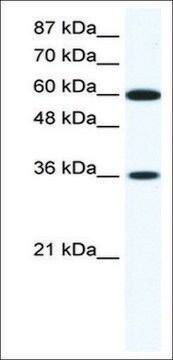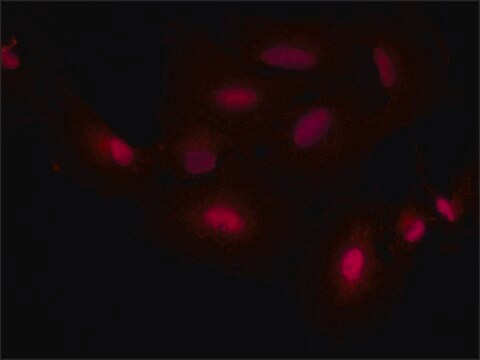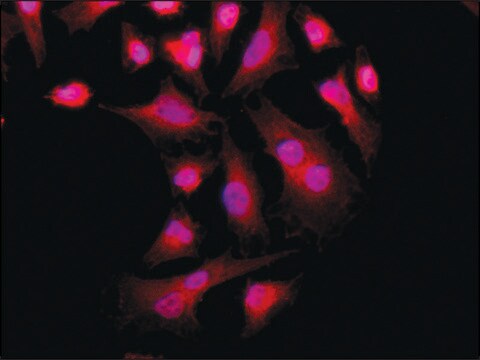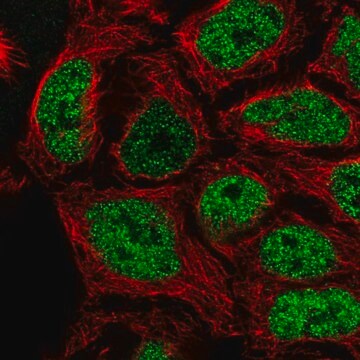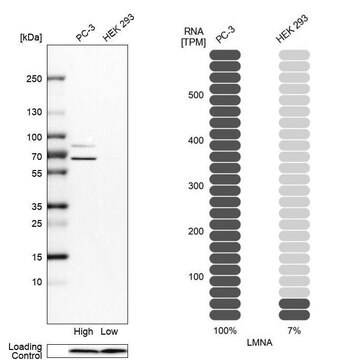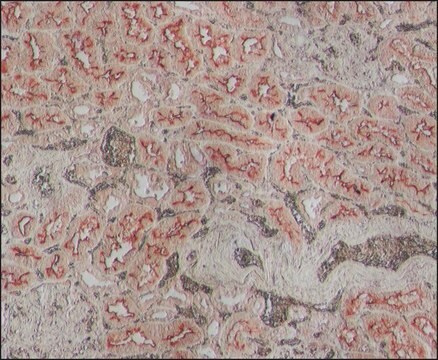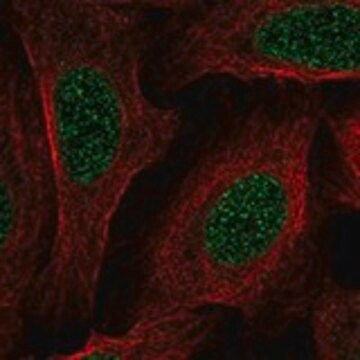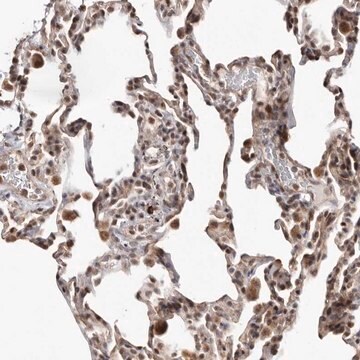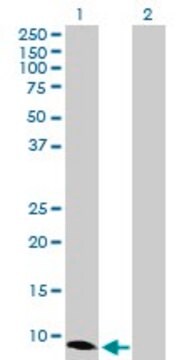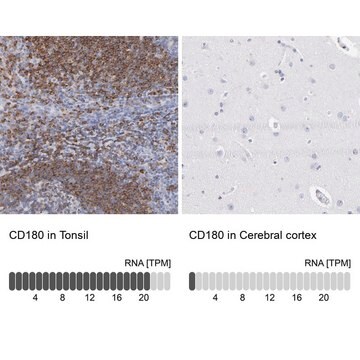Wichtige Dokumente
SAB4200346
Anti-SMAD7 (N-terminal) antibody produced in rabbit
~1.0 mg/mL, affinity isolated antibody, suitable for western blot: 2 μg/mL
Synonym(e):
Anti-CRCS3, Anti-MAD homolog 7, Anti-MAD homolog 8, Anti-MADH7, Anti-MADH8, Anti-Mothers against DPP homolog 7, Anti-Mothers against DPP homolog 8, Anti-SMAD
About This Item
Empfohlene Produkte
Biologische Quelle
rabbit
Qualitätsniveau
Konjugat
unconjugated
Antikörperform
affinity isolated antibody
Antikörper-Produkttyp
primary antibodies
Klon
polyclonal
Form
buffered aqueous solution
Mol-Gew.
antigen ~46 kDa
Speziesreaktivität
human
Konzentration
~1.0 mg/mL
Methode(n)
indirect immunofluorescence: 1-2 μg/mL using human A549 cells.
western blot: 2-4 μg/mL using whole extracts of HEK-293 cells over-expressing human SMAD7.
UniProt-Hinterlegungsnummer
Versandbedingung
dry ice
Lagertemp.
−20°C
Posttranslationale Modifikation Target
unmodified
Angaben zum Gen
human ... SMAD7(4092)
Allgemeine Beschreibung
Immunogen
Anwendung
Biochem./physiol. Wirkung
Physikalische Form
Haftungsausschluss
Sie haben nicht das passende Produkt gefunden?
Probieren Sie unser Produkt-Auswahlhilfe. aus.
Lagerklassenschlüssel
10 - Combustible liquids
Flammpunkt (°F)
Not applicable
Flammpunkt (°C)
Not applicable
Analysenzertifikate (COA)
Suchen Sie nach Analysenzertifikate (COA), indem Sie die Lot-/Chargennummer des Produkts eingeben. Lot- und Chargennummern sind auf dem Produktetikett hinter den Wörtern ‘Lot’ oder ‘Batch’ (Lot oder Charge) zu finden.
Besitzen Sie dieses Produkt bereits?
In der Dokumentenbibliothek finden Sie die Dokumentation zu den Produkten, die Sie kürzlich erworben haben.
Unser Team von Wissenschaftlern verfügt über Erfahrung in allen Forschungsbereichen einschließlich Life Science, Materialwissenschaften, chemischer Synthese, Chromatographie, Analytik und vielen mehr..
Setzen Sie sich mit dem technischen Dienst in Verbindung.